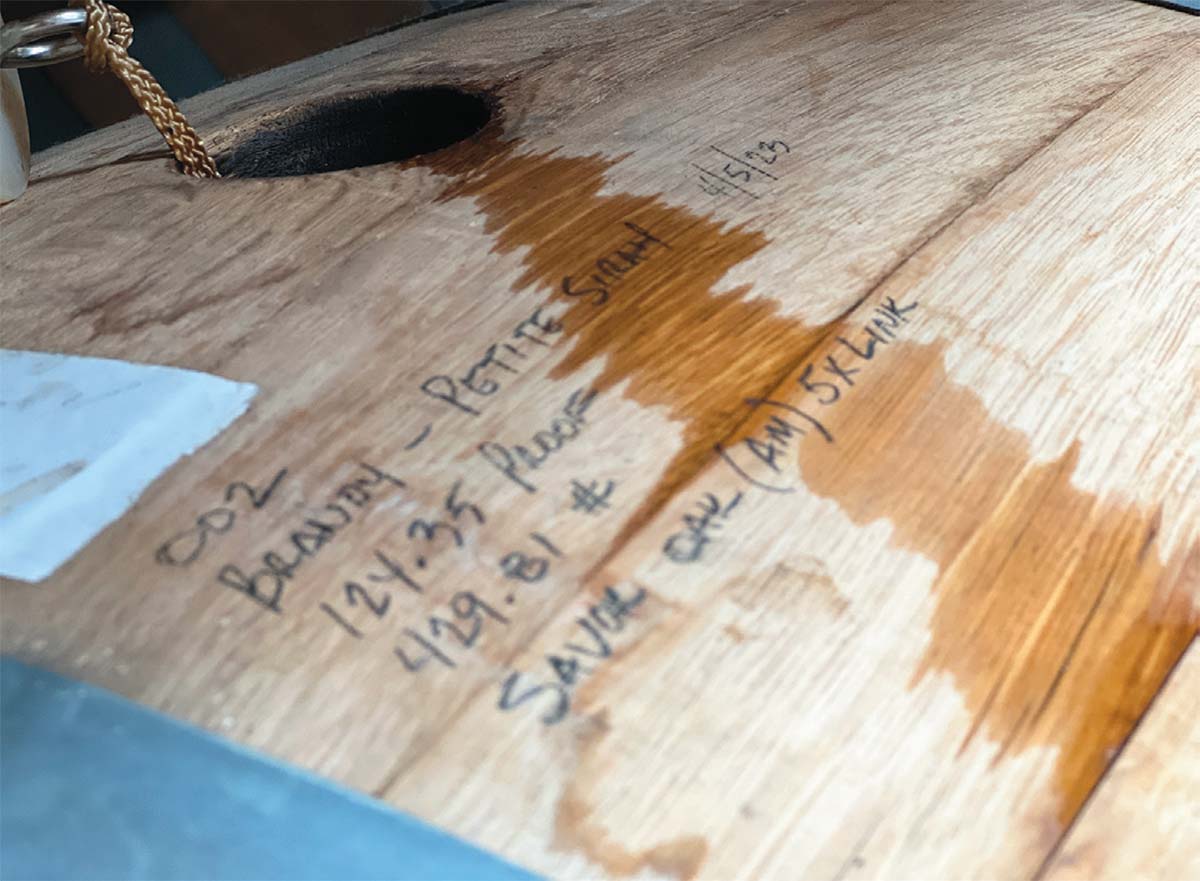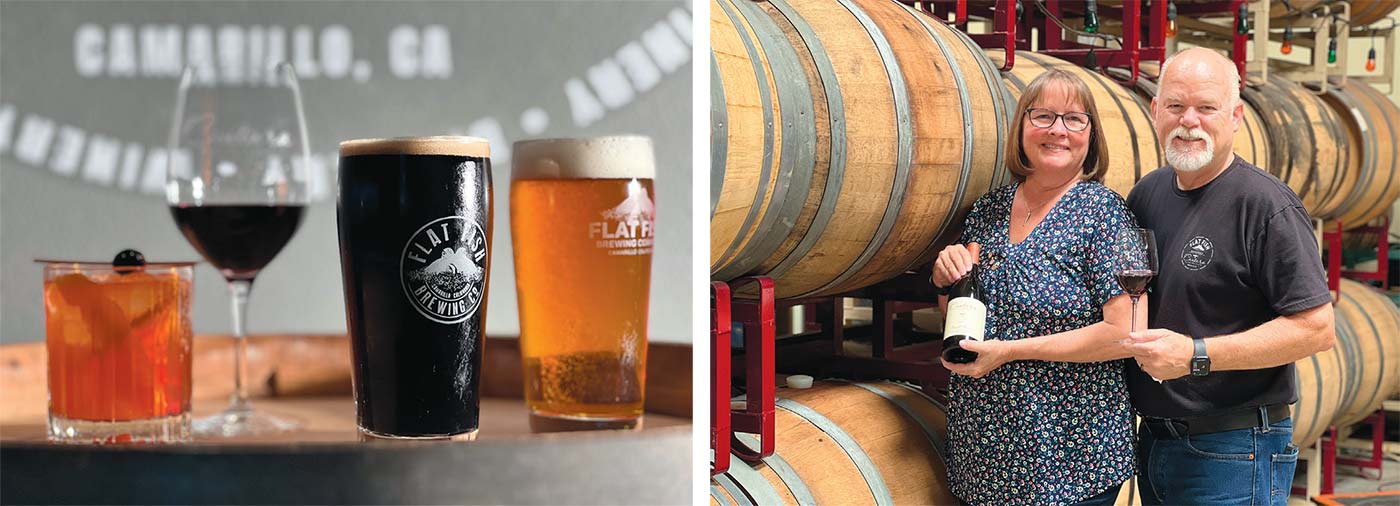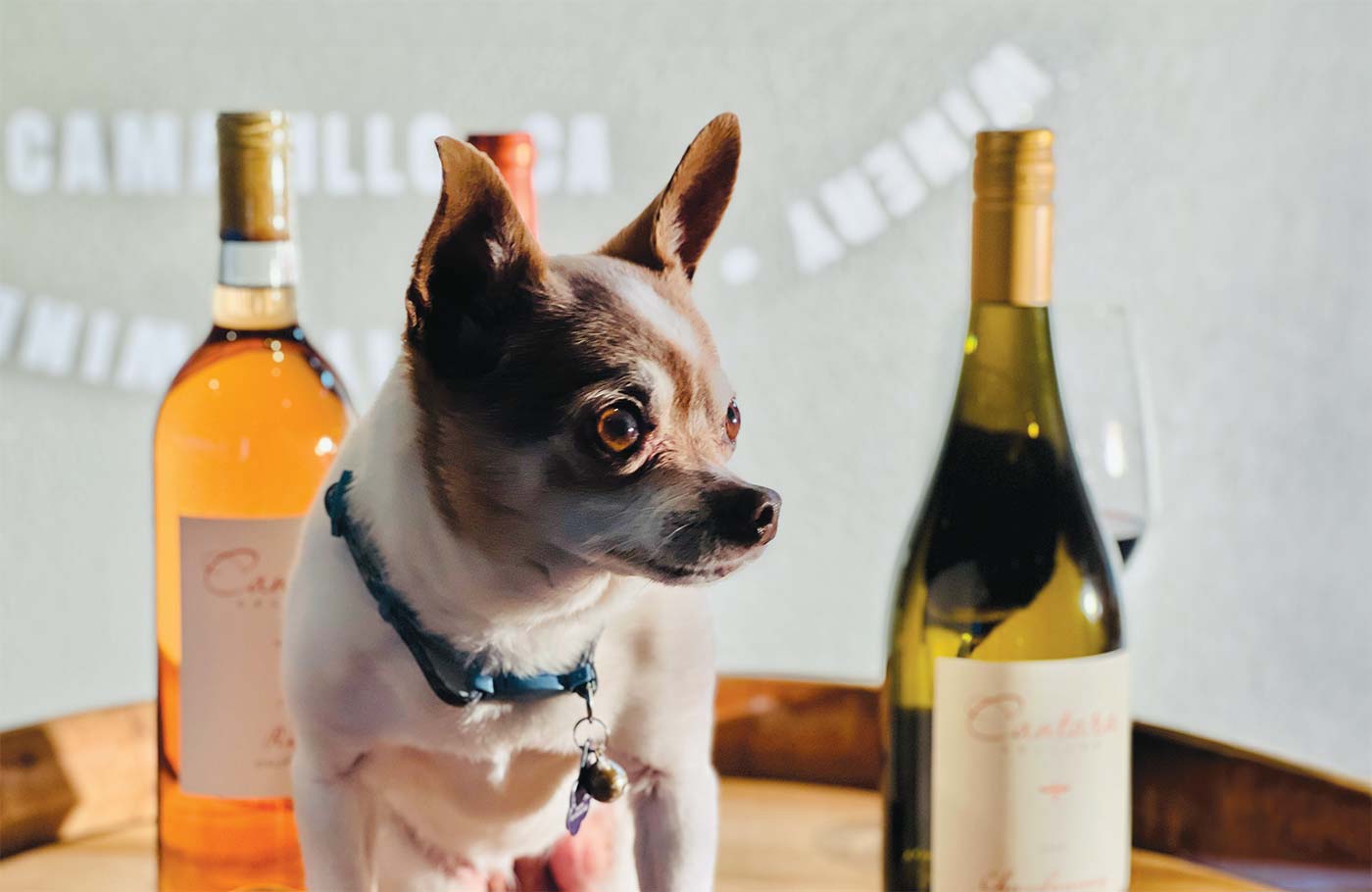He Fought the Law and the Distillers Won
Camarillo Barrel Works is the home of Cantara Cellars and Flat Fish Brewing Co. In January 2024, after almost five years rallying support at the California state capital, the company added Cantara Distillery to their marquee.
Mike Brown grew up in Lodi, where winemaking was a dominant industry. After attending Cal Poly for mechanical engineering, he left the tule fog of the Central Valley behind for Southern California’s more temperate climate.
Brown’s 11,000-square-foot production facility and tasting room, which he operates with his wife, Chris, comprises four suites that the business has expanded into over the course of six years and four phases. Where the original winery tasting room served flights and glass pours, they now have a dedicated kitchen. “We built the kitchen in our first phase,” he says, “then reset equipment for a full kitchen in our fourth phase.”
The current tasting room opens to a large warehouse lined with oak barrels. To visitors enjoying the space for live music, games or events it simply looks like a barrel room. What they may not know is that within that cooperage, wine barrels rest alongside spirit barrels, a powerful symbol of the effort it took Brown and others to change California law in favor of craft beverage manufacturers.
Brown makes the connection between winemaking, distilling and brewing sound seamless. “It’s an Old World concept,” says Brown. “In the fall you make wine; in the winter you distill it and make brandy; the rest of the year you brew beer.”
Using wine to make brandy-based spirits isn’t just a compelling trade with a tasty result. Utilizing runoff for distilling ensures that grapes which have taken valuable agricultural resources aren’t wasted, and that small businesses are employing all avenues to maintain their financial stability.
Years of experience in the wine and beer industries have provided Brown with ancillary skills that he applies to making brandy. Brown surprised another craft distiller by taking samples of his brandy as it moved through distillation, a product-control process he attributes to brewing. He refines the influence of oak on the brandy during aging by utilizing toasted oak staves, a common practice in winemaking.
“It’s an Old World concept: In the fall you make wine; in the winter you distill it and make brandy; the rest of the year you brew beer.” —Mike Brown


Camarillo Barrel Works, owned and operated by Mike and Chris Brown (pictured), brews beer, ferments wine and distills brandy in the same facility and now offers all three plus food and cocktails in their tasting room.
Brown saw the increasing interest in cocktails years ago when he began making moves to add a spirit program. “What we’re doing now, we thought we would be able to do in 2018,” he says. Licensing restrictions soon put a stop to that idea.
At the time, Alcoholic Beverage Control (ABC) laws in California prohibited distillers from selling spirits directly to consumers in the space they were also selling wine and beer.
“It was clear to the ABC that from a production and storage perspective we could comingle products, but how they were interpreting retail operations dictated that they had to be kept separate,” says Brown. So they could manufacture all three beverage categories on site but they needed three distinct areas to sell each product and one could not physically pass into the other.
Finding a distributor who would take the time to educate customers and showcase their small brand was out of the question. Brown had no realistic way of taking his product to market. In 2019, Brown approached California State Assembly Member Jacqui Irwin and started legislative corrective action. According to Brown, the ABC was not fully transparent on the issue, to the legislative analyst, and the session closed without a resolution.
The next year, Brown approached a different legislator but once Covid disruptions emerged all unrelated topics were put aside. By 2022, with the sponsorship of Assembly Member Steve Bennett, AB 1734 successfully passed, allowing wineries and breweries to share retail space. Spirits were left off the bill.
This time, along with the California Distillers Association advocacy, it took another year, another representative, and another legislative session to pass SB 269, which grants craft distillers the ability to share retail space. Finally, the Browns could sell their brandy in the same tasting room where they serve their beer and wine.
“It’s been a brutal process,” says Brown. He has always prioritized his customers throughout the years, inviting them to blending sessions and seeking their feedback.
Ultimately, Mike and Chris Brown didn’t know how people would react to the introduction of a cocktail program and sales of their craft spirits. They’ve been pleasantly surprised, he adds. “Maybe this just happens to have coincided with the evolving desires of the market. I think of it as a win-win.”
Camarillo Barrel Works, Cantara Cellars and Flatfish Brewing
126 N. Wood Rd.
Camarillo
www.camarillobarrelworks.com
805-484-9600





